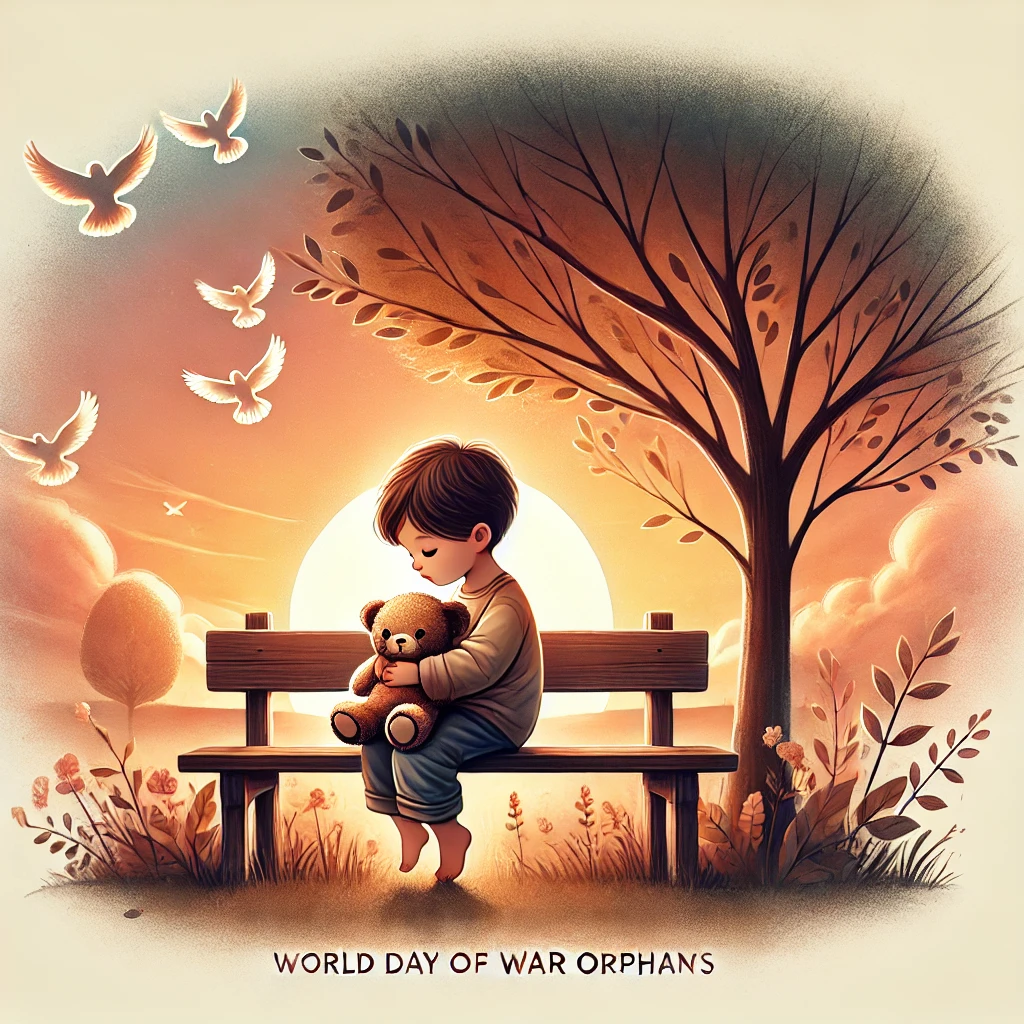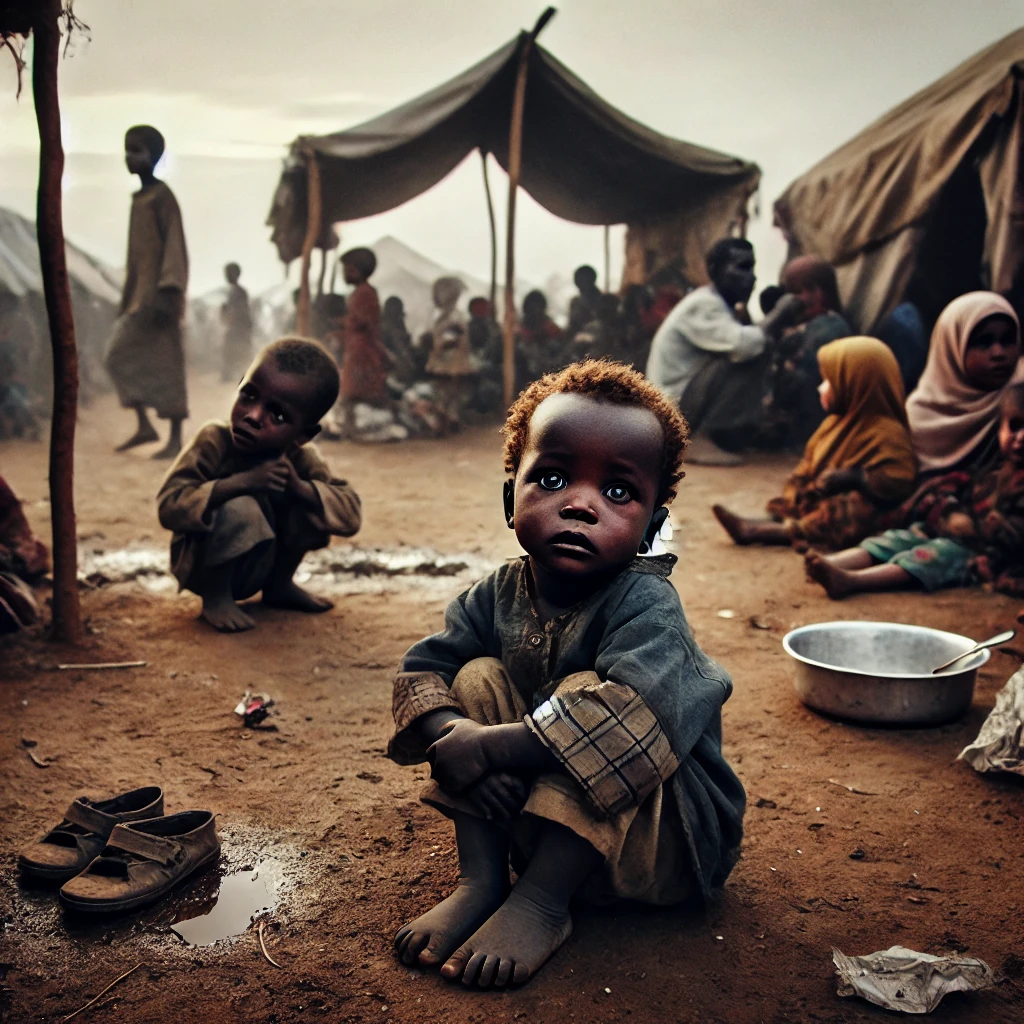World Day of War Orphans: A Heartfelt Call to Stand Together and Bring Hope to Children in Need
Updated: 4 Jan 2025
25
World Day of War Orphans
Every year on January 6, we observe the World Day of War Orphans to think about the children who lost their parents in wars. These children face many challenges but also show great courage. This day reminds us to help them, talk about their struggles, and give them hope for a better future. Together, we can support these children and make sure they are not forgotten.
Recognizing the forgotten victim of war
International War Vagrant Day, observed every January 6, focuses on the large number of children who have lost their people to armed conflicts. These young people, left powerless and facing endless hardships, are the most affected by the neglect of war casualties at this point. The day highlights the need to support, protect and uplift war migrants while promoting harmony and preventing further conflict.
The Importance of World Day of War Orphans

War destroys networks, leaving children without the protection and care of family. The consequences are significant and lasting, often experienced by war veterans:
Deep and psychological trauma: The lack of guardians and exposure to brutality can lead to severe psychological well-being difficulties, including anxiety, depression, and PTSD.
Need and vulnerability: Many conflict nomads are left without access to essential needs such as food, safe housing, and education.
Double treatment and abuse: Without the reassurance of family, war-migrant children are more vulnerable to work, dealing, or enlisting in organized groups.
Challenges faced by war orphans

1. Displacement and homeless
War often forces families to flee, and refugees are left in refugee camps or in the city. These children face an unforgiving daily environment with limited access to food, water, or medical care.
2. Lack of education
Struggling tuition disrupts, and war-weary wanderers often struggle to obtain basic training. This lack of open learning hinders their ability to build a stable future.
3. Psychological health and trauma
Witnessing atrocities and losing friends and family leave lasting scars. The absence of psychological well-being support in war-torn areas is a major challenge for many wanderers to experience peacefully.
4. Social stigma
In some networks, wanderers may face isolation or rejection, making it difficult for them to integrate into society or find support.
Global Effort to Support Orphan War
1. Humanity Aid
Organizations such as UNICEF, Save the Youngsters, and War Kid provide food, shelter, and medical guidance to war-affected youth.
2. Education initiatives
Programs refer to the construction and grant-making of schools that provide guidance to combatants, giving them a path to a more hopeful future.
3. Psychological Support
Trauma rehabilitation programs offer guidance and therapy to help children recover from the mental effects of war.
4. Foster Care and Adoption
Efforts to place war evacuees with temporary families or provide them with the support and care of a home environment through reception.
| How to help a war orphan |
|---|
1. Donate to reputable organizations.Aid organizations that work on the ground in war-torn areas offer basic assistance to stranded children. 2. Sponsor a child’s education.Programs like Kid Sponsorship can directly help a homeless person gain instruction, medical care, and a sense of normalcy. 3. Raise awareness.Spread the word about the hardships war homeless people are facing. Share their accounts through virtual entertainment or local events to support activism. 4. Advocate for PeaceAid organizations and campaigns that focus on reconciliation to prevent people from experiencing the horrors of war in the future. |
Inspiration stories of resilience
- Despite massive hardships, war nomads often show remarkable resilience. For example:
- In Syria, young people trapped by the ongoing struggle have found refuge in public spaces, where they master skills and receive daily reassurance.
- In Rwanda, survivors of the 1994 catastrophe have become champions and promoters of harmony and compromise.
Questions and answers
Why is World War Vagrants Day important?
The day highlights the struggles of young people who have lost their families to war and emphasizes the global responsibility to help them.
How many war vagrants are there worldwide?
Sometimes it is difficult to determine the exact number, as so many young people are trapped by conflict overall, especially in areas such as the Middle East, Africa, and Eastern Europe.
What are some long-term responses to help those who have drifted into conflict?
The arrangements developed include school drives, psychological well-being support, childcare, and strategies that focus on children’s freedoms and government support in conflict areas.
How can I increase my support for war vagrants?
You can maintain respectable, helpful associations, help with a child’s schooling, bring issues to light, or volunteer with programs that help children affected by war.
Please Write Your Comments